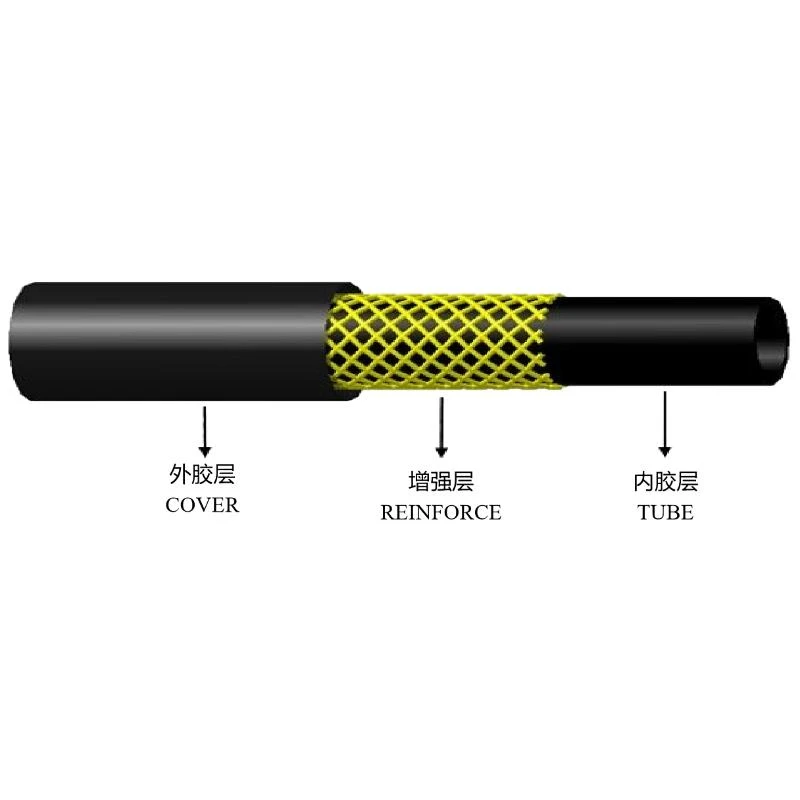Versatile Refrigeration Hoses for Flexible and Efficient Cooling Solutions
Nov . 10, 2024 18:34 Back to list
Versatile Refrigeration Hoses for Flexible and Efficient Cooling Solutions
The Importance and Innovation of Flexible Refrigeration Hoses
In the world of refrigeration and HVAC (Heating, Ventilation, and Air Conditioning), the components used are critical for ensuring efficient and effective performance. Among these components, flexible refrigeration hoses play an essential role. These hoses, designed to safely transport refrigerants, are not only vital for the operation of refrigeration systems but also embody significant innovations that enhance sustainability and user experience.
What are Flexible Refrigeration Hoses?
Flexible refrigeration hoses are specially designed tubes that connect various parts of refrigeration systems, such as compressors, evaporators, and condensers. They are usually made from high-quality materials that provide durability and resistance to harsh chemicals and temperature fluctuations. Unlike rigid piping, flexible hoses can bend and curve, allowing for easier installation in compact or awkward spaces, which is especially important in residential and commercial HVAC applications.
Advantages of Flexible Refrigeration Hoses
1. Easy Installation One of the most significant advantages of using flexible hoses is their ease of installation. Due to their pliability, they can easily navigate around obstacles, making them an ideal choice for retrofitting existing systems or when installing new ones in tight spots.
2. Vibration Absorption Refrigeration systems often generate vibrations due to the operation of compressors and fans. Flexible hoses can absorb these vibrations, preventing stress on the system and extending the lifespan of the overall installation.
3. Temperature Resistance Modern flexible refrigeration hoses are designed to withstand extreme temperatures and pressures. This resilience ensures that the refrigerant being transported maintains its properties and efficiency, which is crucial for the overall performance of the system.
4. Reduced Risk of Leaks With advancements in technology, many flexible hoses are now equipped with specialized sealing mechanisms that significantly reduce the risk of leaks. This is particularly important in refrigeration applications, where even minor leaks can lead to significant losses in efficiency and have adverse environmental impacts.
flexible refrigeration hoses

5. Corrosion Resistance Flexible refrigeration hoses can be manufactured from materials that resist corrosion, making them suitable for various environments, including marine and industrial settings.
Innovations in Flexible Refrigeration Hoses
Recent innovations have taken flexible refrigeration hoses to new heights. For instance, manufacturers are now integrating advanced materials such as thermoplastic elastomers (TPEs) and braided composites, offering better flexibility with enhanced strength. These materials also contribute to higher performance standards, ensuring that hoses can handle modern refrigerants, some of which have different chemical properties compared to their predecessors.
Moreover, the move towards environmentally friendly refrigerants has called for hoses that can withstand these new substances without degradation. As regulations become stricter regarding refrigerant emissions, manufacturers are responding by creating hoses that not only comply with these regulations but also enhance the overall sustainability of refrigeration systems.
Selecting the Right Flexible Refrigeration Hose
Choosing the right flexible refrigeration hose involves various factors. It is essential to consider the type of refrigerant being used, as compatibility with the hose material is crucial. Additionally, the operating temperature, pressure ratings, and the physical layout of the installation site must also be taken into account. Consulting with professionals or manufacturers who provide specifications can guide users in making the best choice for their needs.
Conclusion
Flexible refrigeration hoses are a cornerstone in the HVAC and refrigeration industry, offering a blend of versatility and efficiency that is unmatched by rigid piping systems. With ongoing innovations and a growing emphasis on sustainability, these hoses are poised to meet the demands of modern refrigeration applications effectively. By enabling ease of installation and ensuring reliable performance, flexible refrigeration hoses contribute significantly to the overall efficiency and functionality of HVAC systems, making them an indispensable component in today’s environmentally conscious market. The future of refrigeration certainly looks promising with the continued development of these essential components.
